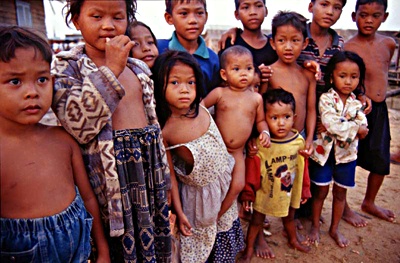All Nonfiction
- Bullying
- Books
- Academic
- Author Interviews
- Celebrity interviews
- College Articles
- College Essays
- Educator of the Year
- Heroes
- Interviews
- Memoir
- Personal Experience
- Sports
- Travel & Culture
All Opinions
- Bullying
- Current Events / Politics
- Discrimination
- Drugs / Alcohol / Smoking
- Entertainment / Celebrities
- Environment
- Love / Relationships
- Movies / Music / TV
- Pop Culture / Trends
- School / College
- Social Issues / Civics
- Spirituality / Religion
- Sports / Hobbies
All Hot Topics
- Bullying
- Community Service
- Environment
- Health
- Letters to the Editor
- Pride & Prejudice
- What Matters
- Back
Summer Guide
- Program Links
- Program Reviews
- Back
College Guide
- College Links
- College Reviews
- College Essays
- College Articles
- Back
The Boy from Kathmandu MAG
A small, gnarled hand pushed through my open bus window and onto my lap as a timid voice whined, “I so hungry.” Turning, I expected to see an old woman matching the voice and hand, but instead saw a young boy. Stunned, my eyes remained fixed on his face, which was scarred and lumpy on one side, the mouth pulled down in a perpetual half-frown. A loose T-shirt hung from his thin frame. At the time, I had no idea that this young Nepali beggar would have a lasting impact on how I see the world and myself.
I met this boy as soon as I arrived in Kathmandu. Embarking on a medical volunteering trip in Nepal to learn about the culture and help the poverty-stricken, I felt open-minded and fearless as I sat in a thundering tourist bus barreling down noisy, colorful roads. The bus turned into a narrow alley close to my hotel and stopped to let passengers off. As I chatted with another volunteer, I saw the beggar. His pain was palpable; I could barely hear my advisor, Daisy, telling me that this boy had probably been burnt in a fire years before, hence his scars.
“Do not give this child money,” she warned, “or he'll use it to buy drugs.” I watched helplessly, speechless, while he continued moaning, “I hungry, I hungry,” with an open hand. The bus then rumbled back to life as we continued to the hotel. My heart did not return to a normal rhythm for another hour.
The next day, three volunteers and I went out to explore Kathmandu, but I could not shake the image of the previous day. Then, on a street near our hotel, we saw the boy again. I stopped in my tracks, frozen, filled with discomfort and hopelessness for the boy as the words of my advisor kept echoing in my head.
“Melissa, what are you doing? Let's go!” exclaimed my friends. I shook myself from my stupor and ran into the nearest shop.
The day before we were scheduled to leave Kathmandu, the boy was just a small memory among countless new ones; we had ridden elephants, observed surgeries, and met young children with HIV, among other incredible experiences. My roommate and I had run out of toilet paper, and she, stranded in the bathroom, sent me to buy a roll from the corner store. Right outside the market stood the boy. He came up and touched me on the shoulder with his deformed hand.
This time, I took a deep breath and told him, in my rudimentary Nepali, to wait. I dashed into the store and bought biscuits, water bottles, and bananas and gave them to the boy. His face stretched into a half-smile as he croaked “Dhanybhad” (thank you) and took his treats over to another small boy on the street. The other boy clapped him on the shoulder and the two grinned as they tore open the packages of almond biscuits.
I stood there, overwhelmed, amazed that my small gesture could bring a smile to this scarred boy. Then I realized that I had spent the remainder of my Nepali rupees but neglected to buy toilet paper for my roommate, who was still abandoned in the bathroom. I hurried back to the hotel to borrow a roll from Daisy.
When I reflect on my trip, I see foremost the young beggar. He may not be a role model or a mentor, and I may not even know his name, but he has taught me more than he will ever know. He taught me that there is enormous pain that I cannot even imagine, and that even a small act can help alleviate it, if just for a second. He taught me that I have a lot of learning left to do before I can truly help people who, like him, have experienced overpowering hardships. He taught me that I am not always the fearless, open-minded young woman I would like to be but that with effort, I can be.


1 article 0 photos 1 comment
Favorite Quote:
The secret to true happiness is a combination of low expectations and insensitivity.